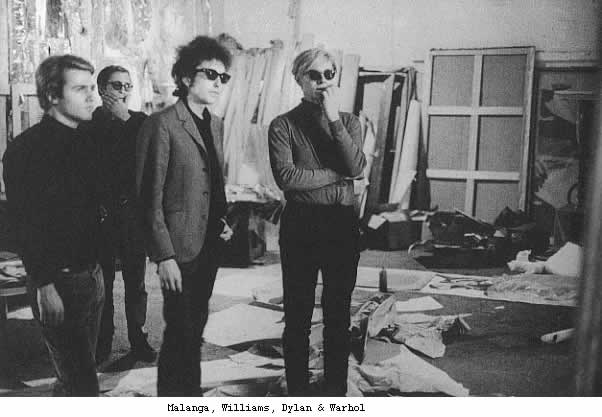Bob Dylan Lays Off 2,000 Workers From Songwriting Factory
Of course, it's hilarious to think of Bob Dylan as a factory owner and manager of a songwriting brand. But I think that here humor plays its highest role of teasing out the doubts that quietly rot beneath cherished articles of faith, and by exposing and examining these doubts we can enjoy a nice insight into popular music as a commodity. The music industry is now facing a crisis that is here ironically related to deindustrialization, but the humor points to very real anxieties about contradictions within the economy—contradictions that have relevance far beyond the music industry. But to begin, I will just address the first layer of irony, of Bob Dylan as a sober manager and his music as the product of an assembly line.
Music has the potential to be an exemplary commodity for the very reason that the form in which it appears in society, that is in the market, obscures the actual terms of its production. The word commodity carries with it a sense of sterility or at least banality, and through common usage connotes items like gold and oil that are extracted from the earth or crops like corn that grow from it. Commodities are impersonal and mass produced, quite the opposite of the deeply meaningful songs produced by an artist like Bob Dylan. Yet there is no Bob Dylan without the record company that promotes, assembles, distributes, and markets his songs.
On the other hand, much popular music is in fact produced entirely in a factory-like process with various specialists like song writers, producers, engineers, session musicians, image consultants, stylists, etc. each contributing their own part to the division of labor. Of course, this is far from a recent innovation in popular music, and we can even more fully appreciate Dylan's artistry by juxtaposing him with 'studio creations' like Britney Spears.
But even for an artist as unique as Bob Dylan, there is a whole team of people, publicists, concert bookers, merchandise designers, and others whose livelihood is dependent on the perpetuation of Bob Dylan's 'brand,' and without whom we could not experience his music. And while his songs may very well induce an intensely personal experience for the individual listener, it's only the fact that so many people are able to have such a personal response to his music that makes him a star. Yet next to the brightly shining light of Dylan's creativity and uniqueness, the dim glow of the multitude of workers whose ultimate product is Bob Dylan cannot be seen--they are lost in the glare. Like precious metals or natural resources such as oil, the value of Dylan's music seems to be its inherent characteristic, rather than a socially-determined datum that relates it to a global system of the reproduction of society.
 |
| Bob Dylan in Andy Warhol's "The Factory" |
This tendency to confuse commodities themeselves with the social relations that determine their production is a central problematic for Marx, what he calls the commodity fetish. In his analysis, the commodity fetish plays an essential role in reproducing a society in which the social relations between people become subjected to seemingly iron economic laws, in which one's time is never truly one's own, and in which this state of affairs appears to be natural and ineluctable. My application of Marx's concept to the production of popular music should not be taken merely as a moralistic complaint about the inequity of the distribution of profits in a capitalist economy. Rather, what I think looking inside Bob Dylan’s factory reveals is the far more fundamental tendency of the capitalist form of society to disguise the nature of the social relations from which it is produced.
In a future post I will look further into the way that the production of commodities unites two very different processes, labor and valorization, and their separate results, use value and value, and I will draw some connections to the current crisis in the music industry.
"This tendency to confuse commodities themeselves with the social relations that determine their production is a central problematic for Marx, what he calls the commodity fetish. In his analysis, the commodity fetish plays an essential role in reproducing a society in which the social relations between people become subjected to seemingly iron economic laws, in which one's time is never truly one's own, and in which this state of affairs appears to be natural and ineluctable."
ReplyDeleteThis, for my money (I know, bad pun :P), is an excellent explanation of commodity fetishism in just two sentences.
Thanks Stephen, it only took two of us to come up with it!
ReplyDelete